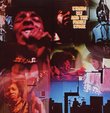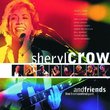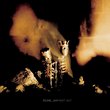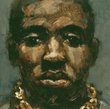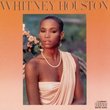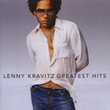| All Artists: Sly & Family Stone Title: There's a Riot Goin on Members Wishing: 5 Total Copies: 0 Label: Epic Original Release Date: 1/1/2008 Re-Release Date: 7/13/2010 Genres: Pop, R&B, Classic Rock Styles: Funk, Soul, Psychedelic Rock Number of Discs: 1 SwapaCD Credits: 1 UPC: 886972695327 |
Search - Sly & Family Stone :: There's a Riot Goin on
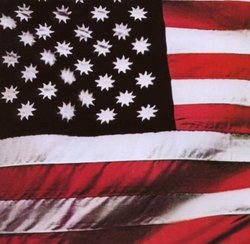 | Sly & Family Stone There's a Riot Goin on Genres: Pop, R&B, Classic Rock
|
Larger Image |
CD DetailsSimilar CDs
Similarly Requested CDs
|
CD ReviewsPortrait of the artist as a train wreck mediafreak | 02/21/2009 (5 out of 5 stars) "This one of the most harrowing albums ever made, a brilliant musician caught in the transitional stage of losing almost everything to drugs but before his creativity imploded. File under Skip Spence's Oar, Big Star's SisterLovers, Syd Barrett and Brain Wilson's Smile-era flame-outs. The basic deal is Sly deconstructing a more polished album by substituting his own sloppier instrumental overdubs, narcotic vocals, mental wanderings. Easily one of the greatest albums of the 1970's, it's like a slow motion audio trainwreck you won't want to turn away from. Essential dub funk but also a audio document of drug-induced brain damage. Many of us from my generation experimented with drugs and came through it. This is the sad, cautionary tale told in beautiful music of one of our greatest musical lights being extinguished." Still checkin eachother out... heeeeeyyyyy.... R. Rodriguez | 03/22/2009 (5 out of 5 stars) "i finally found this on a beautiful gatefold lp at the mighty "my mind's eye" in lakewood. it was a very good day indeed, because this is one of the greatest albums ever recorded." The dark side of remembered Boomer paradise silt | Portland Maine, USA | 11/20/2009 (4 out of 5 stars) "If you've never heard Sly & the Family Stone before, start with Stand! and Fresh. For many, that will be all they ever want. This album is Stand! turned inside up and upside in by a narcotic, gun toting haze. Not for the faint of heart.
Thing is, it's also very, very good. To make things perfectly clear: Sly was drugged out of his bleepin' mind when he recorded Riot. It's testament to his enormous talent he managed to get out an album so funky most musicians would give their left nut to have done one track from it. "Luv N' Haight" is a damning indictment of the Summer of Love. (As well as a fine punning title, though if he started luv as a spelling I'll knock a star off!) "Poet" has one of the deepest funk grooves ever recorded. "Thank You for Talkin' to Me Africa" is the deliriously joyous "Thank You (Falettinme Be Mice Elf Again)" slammed into the mud and shot up. It's also the standout track and the core of the album. It is inexorable downward pressure. It doesn't go anywhere, it starts you low and keeps you there for the duration as guitar and organ flourishes waft in and out as phantoms of his (then recent) happy past. The Velvet's "Heroin" romanticizes the rush and crash waves of using; this track is the grinding reality. The sound of the album is sometimes frustratingly murky. His vocals are slurred. All part of the package." |

 Track Listings (15) - Disc #1
Track Listings (15) - Disc #1


